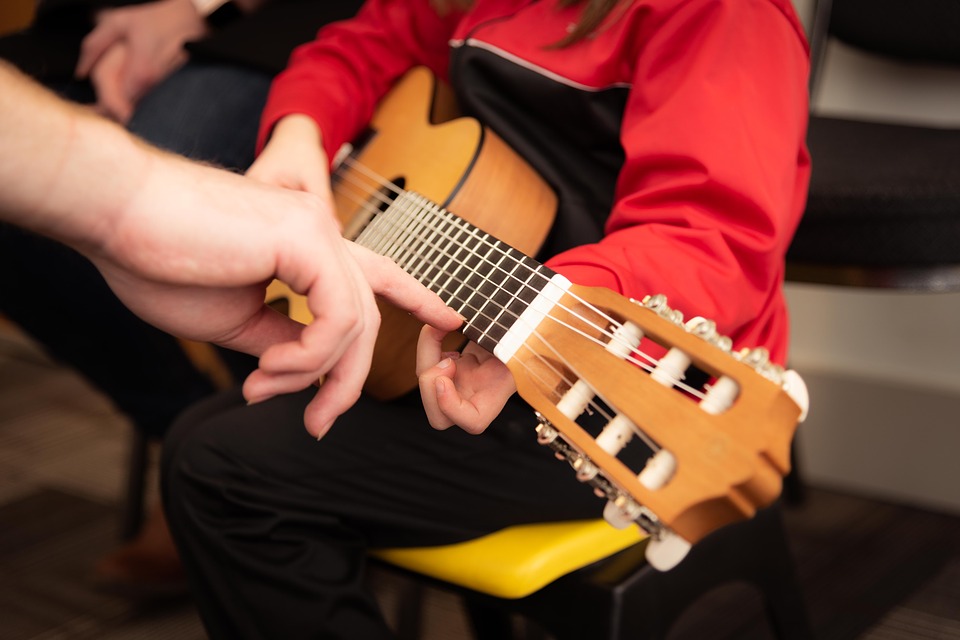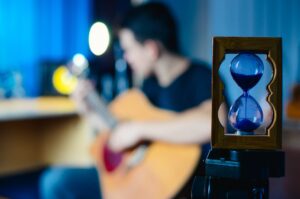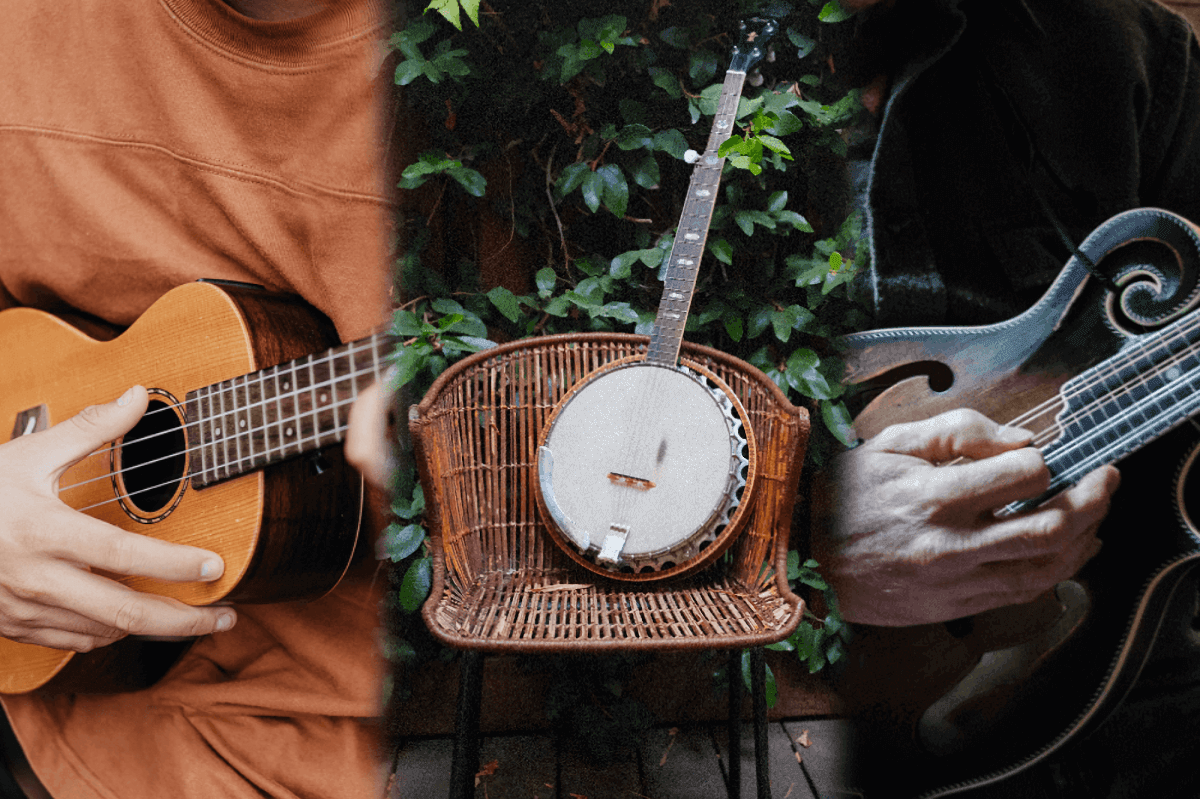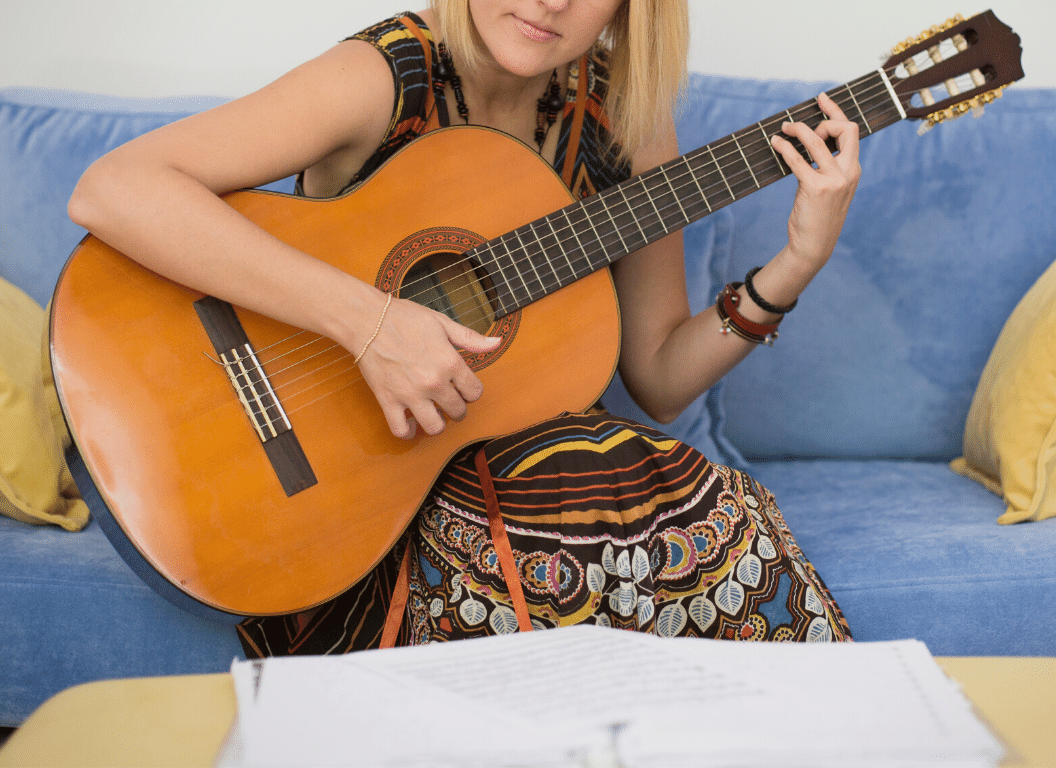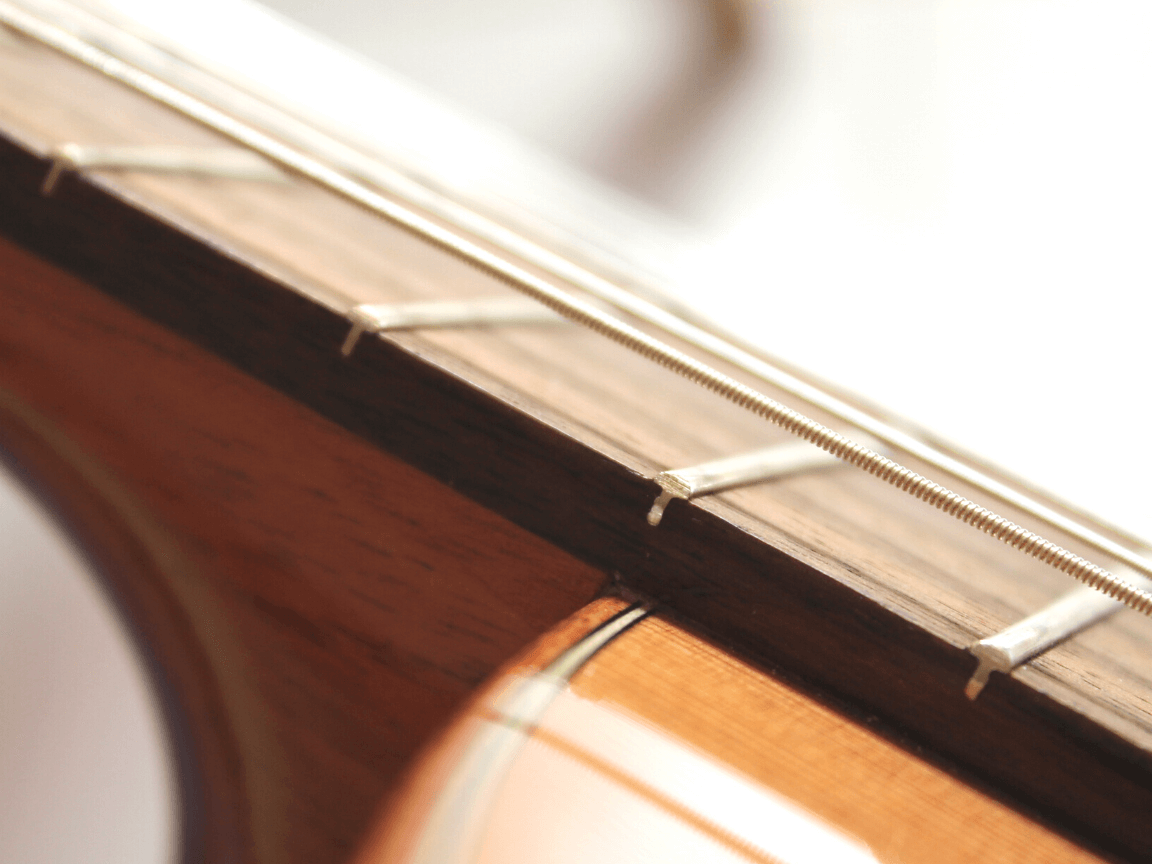How long does it take to learn to play the guitar?
This is one of the very first things that people think about when they have a limited amount of time that they can dedicate to playing guitar.
Most people usually just play for about 10 to 30 minutes every day and some others play for about 4-8 hours every day and even more.
What if you could learn the same thing that someone playing 8 hours learns while playing only for 30 minutes every day?
Is that even possible?
Let’s talk about it…
How long does it take to learn to play guitar?
In about 5 to 6 months you should have a basic understanding of how guitars work and should be able to strum and arpeggiate chords at the very least. If you start practicing 30-60 minutes daily, you should be able to play barre chords and do solos in every key you want by that time.
Now…
Answering this question is a bit complicated since it really depends on many different things like your main goal, and what you really define as “knowing how to play the guitar.”
Do you want to be able to just play solos? Or are you okay with just knowing how to play simple chords?
The amount of time that you put into learning will influence your progress, but at the same time, I do believe that if you are not practicing the right things at the right time, you won’t be able to see any improvements.
That is why you could learn the same thing as someone playing 8 hours a day while only playing for 30 minutes every day.
If you are taking advantage of every single second of that practice session, you could see a big difference in contrast to another guitarist that spends the entire day practicing either the wrong things or in the wrong ways with the wrong postures.
What are some of the best tips to learn to play the guitar faster?
Since it really depends on what you do, and not how long you do it for, these are some of the best tips and tricks that we think will make you learn faster.
I’ve found these to be very helpful to those who are just starting to learn to play the guitar and cannot really put a lot of time into it.
- Always plan a routine and stick to it
Your routine is everything, and by routine, I mean what you do, how you do it, and how long you do it for.
Learning to play any musical instrument requires you to plan how you want to achieve that.
How do you do so?
Well…
One simple trick to keep everything organized could be to just use your smartphone or a piece of paper to have a small checklist.
You would put everything that you want to accomplish for each session.
For example, this is what I would put it if I needed to practice for only 30 minutes every day:
Warm-up: 5 minutes
Technique: 10 minutes
Chords and Chord Progressions: 5 minutes
Arpeggios and Scales: 5 minutes
Soloing: 5 minutes
Of course, you would replace generic words like “Technique”, with whatever you are planning to learn at the time, for example:
- Hammer-On: 5 minutes
- Am – C: 5 minutes
By doing this, you would always know what you’re supposed to be doing at all times and would always be making the most out of any practice session.
But, just to be clear…
That checklist that I provided above is not really what everybody should be doing.
There are some obvious differences between being a beginner and being an intermediate or an advanced player, which would make you have to practice something different depending on the level that you are.
When it comes to me telling you that, I have no real way to give you a piece of valid advice.
For beginners, it has to obviously change just to take things slowly and focus on one thing at a time.
Most people tend to lose interest in the beginning only due to a lack of enthusiasm and motivation.
So, I would say that if you see that you are struggling with something in specific, don’t give up, but rather just don’t judge your ability to play the guitar on just one thing that you are not able to do.
- Be consistent with your goals and don’t stop practicing
This is self-explanatory: have goals and don’t stop pursuing them.
Make sure that your goals are realistic and achievable.
What goals should you set for yourself?
You should allow yourself some time to learn, first of all.
But…
If you want to have something specific that you want to accomplish as a beginner, make sure to choose to play a certain chord progression or maybe just an easy song that requires minimal effort.
Maybe you want to be able to play a certain strum pattern or just a simple melody.
Whatever it is, always be consistent and don’t change to your next goal until you have mastered the one before.
As I also said before, you should also be realistic.
What do I mean by that?
Don’t expect to play a Jimi Hendrix solo in your first week, for example.
Usually, beginners lack consistency because they don’t see progress in what they play.
If you have small goals, you will be most likely to feel proud of what you hear, just because you will be achieving things more often.
At least that’s what worked for me many years ago.
- Be passionate about playing and learning guitar and love the journey
This is my personal point of view and any sort of corrections are highly welcomed:
Passion is something without which even the smallest task becomes a burden.
This is because the person doesn’t really feel connected to what he/she is doing and therefore, results in getting distracted very easily.
What I’m really trying to say is that learning to play a new instrument can be tough sometimes, and very frustrating.
So, the only thing that will keep you consistent or at least motivated is always going to be your passion and how you feel about the process of learning.
A little story about me is that when I started to learn, it didn’t really go that well in the beginning.
I was breaking my guitar strings all over the place, and the fact that I couldn’t play the “Seven Nation Army” riff was always following me!
For reference to those that don’t know what I’m talking about:
In the end, the only thing that made me keep practicing was that I really wanted that for myself, I wanted to be able to play a few songs to my friends and have a good time with my guitar; I was passionate about it.
So, if you are too, then that will help you even more than anything else on this post.
- Learn to learn and be realistic about your expectations
At first, that statement alone can sound really useless.
But it is true…
You need to be able to know the best way in which you learn better and faster.
For example, in my case, I learn by repetition and seeing another person play the guitar.
The more I do it, the better I get at a certain technique.
Some other people prefer to read a guitar book, for example.
It is your job to find out your best strategy and then stick to it.
Here are a few different ones…
- Following and watching YouTube videos
- Listening to songs, and then trying to play them
- Playing with another friend that already plays the guitar
- Learning chords separately and then doing simple chord progressions
- Hiring a guitar teacher
By no means, those strategies are in order of what you should do now, but it really gives you an idea of how others are learning.
If you feel like you are taking a lot of time to get the basics, then just know that it’s alright to learn slowly as well.
Here is something that might give you some motivation:
Many professional guitar players have given up before at some point:
According to Eric Clapton’s Wikipedia biography:
Clapton received an acoustic Hoyer guitar, made in Germany, for his thirteenth birthday, but the inexpensive steel-stringed instrument was difficult to play and he briefly lost interest. Two years later Clapton picked it up again and started playing consistently.
Have in mind that Eric Clapton has ranked second in Rolling Stone‘s list of the “100 Greatest Guitarists of All Time” in 2015.
And fourth in Gibson‘s “Top 50 Guitarists of All Time” in 2010, that’s just to name two of all the great accomplishments he has in his career.
Imagine him giving up completely when he was thirteen years old and not picking his guitar up two years after.
We would have missed a lot of great songs!
Now, to you:
Everybody can play the guitar, but not everyone will. It’s your choice to choose which one will you be.
Don’t give up!
Also, please be very realistic about your expectations.
Meaning set small goals that you know you can achieve very easily if you put the effort.
Like I said before, don’t expect to play a Jimi Hendrix solo in your first week.
Instead, choose to take small steps at a time.
- Find the right amount of time to practice
Like I was saying before, you need to find the best way in which you learn better and faster.
Among many other things, you will find out that you either need a lot of time to get one thing right or just a short period of time before you move on to the next thing.
Do this by intuition. If you feel you need more time to get something right, then, by all means, take more time.
But this can come with negative consequences for some people…
The only thing you need to be careful with is just falling in a loop in which you just want to play a certain melody that maybe, at the time, is not appropriate for you to play and learn.
If you practice regularly, then chances are high that you’d be able to play the guitar just how you imagine you playing.
Just time yourself.
And make sure that you find that sweet spot in which you are not over practicing, but at the same time, not spending enough time on important guitar exercises.
- Have fun all the time
Up to this point, I’ve said many things that helped me personally in learning faster and keeping myself consistent.
But, in all fairness…
I should also say that playing the guitar should be fun all the time.
Please, do not get bored and give up quickly.
If it helps you…
Use the strategies that I mentioned before in which you play with another friend that already plays the guitar.
Or, if you don’t know anybody like that, then use songs that you like and learn them.
Just find ways to make the process better so that you can have a good time with your instrument, while at the same time you master it.
How to determine whether or not you’re making progress?
Well, I don’t consider myself a professional guitarist at all and just have been playing it as a hobby.
However, the little experience that I have has allowed me to come to certain conclusions that might be helpful for someone like you.
In my opinion, when a person is fully focused on one thing, then it’s quite possible for him/her to achieve that target goal within the proposed time period.
Know that it might work a bit differently depending on what you want:
- To become a professional guitarist:
The time frame of practice sessions should be increased to the maximum.
- To learn guitar just for time-passing:
Then it’s okay to not be so tough on yourself.
If you see that you are happy with what you are doing and that you are setting up goals for yourself that you are actually working on…
Then you are pretty much making 100% more progress than those who want to learn, but can’t even start.
I encourage you to watch this YouTube video by Guitar Goddess titled “How Long Does It Take to Get Good at Guitar?” in which they answer this same question with many other examples and tips that they have used for themselves in the past

An avid storyteller and music lover that devotes all his free time to mastering the art of playing guitar. I’ve played acoustic for 6 years, and recently started playing electric guitars. Currently playing an Epiphone SG Special!

